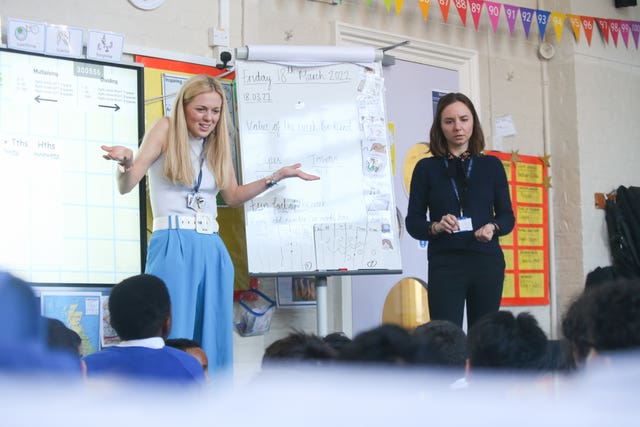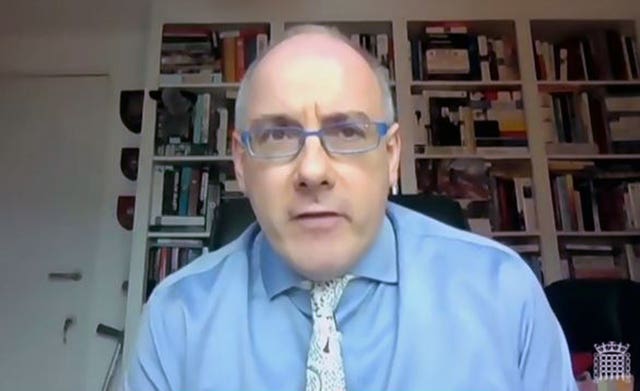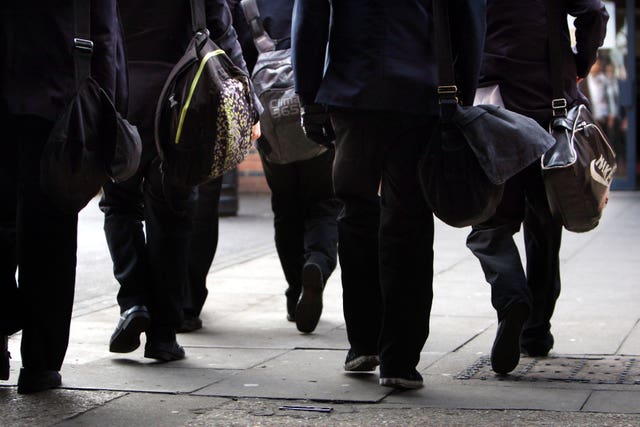New attendance register to stop ‘ghost children’ falling through the net
National data will be compiled on pupils who have fallen off school radars, Education Secretary Nadhim Zahawi announced.

A new national register will be introduced to stop vulnerable pupils falling through the cracks and going missing from school rolls, the Government has announced.
The Schools White Paper announced that laws would be introduced to modernise how attendance is recorded, with a “national data solution” used to track attendance and provide a “safety net” for vulnerable pupils at risk of disappearing from school rolls.
A national register would be introduced to assess how many pupils were not in school across the country, he said.
On Monday, Mr Zahawi told the BBC that the department’s national register of children in England would prevent students from going “missing from education”.
“Some parents do brilliant work on home-schooling. I have them in my constituency, I’ve seen first-hand that work,” he added.
“But of course some children are missing from education. That can’t be right, which is why the national register is so important.”

Robert Halfon, chair of the Commons’ Education Select Committee, has frequently raised concern over the numbers of “ghost children” following the pandemic – pupils who have fallen off school rolls during the past two years.
Some estimates suggest as many as 100,000 pupils are missing from school rolls.
The Paper said it expected schools and council attendance services to work closely together to help “severely absent” pupils who miss 50% of their schooling back into the classroom, and that new statutory expectations of attendance services would be introduced.

Parents will also be able to give their views of behaviour in their children’s school as part of a new national survey, the Paper said.
In the Schools White Paper, Education Secretary Nadhim Zahawi said that behaviour and exclusions guidance for schools would be revised, while a new National Behaviour survey would be launched “to better understand what parents, children, teachers and leaders think of behaviour and wellbeing in their school”.
The White Paper added that the forthcoming SEND Review, published on Tuesday, would set out reforms to “tilt the focus of alternative provision towards early intervention” so that pupils would be supported in managing their behaviour and preventable exclusions could be avoided.
The Paper announced a “Parent Pledge” for pupils falling behind in maths and English, with tutoring made available for any pupils struggling with literacy or numeracy.
It is hoped this will support the target of 90% of pupils leaving primary school attaining expected standards in English and maths.

“This could take the form of a phonics catch-up programme run by a trained teaching assistant, or small group tuition after school in maths,” the Paper says.
Parents will also be kept informed of their child’s progress through the scheme, and schools should monitor pupils’ learning through “robust” testing.
The Paper set out plans for all schools to join or be planning to join a “strong” multi-academy trust by 2030, while academy trust standards would be introduced to regulate the system.
It committed to 500,000 additional teacher training opportunities by the end of the parliament, and also aims for a new 32.5 hour week to be introduced as a minimum for schools by September 2023.
Every school would have the opportunity to access funded training for a senior mental health lead, it said.
Natalie Perera, chief executive of the Education Policy Institute (EPI) said: “The White Paper contains some bold aims, and a number of welcome measures, such as extra support for in-school mental health services and additional monitoring of children who are not in school.
“But it seems unlikely that many of these bold pledges will in practice be met. Since the pandemic started, children have fallen behind in their learning, and the data published so far shows that there has been little catch up for secondary pupils and much bigger losses for the disadvantaged and those in the so-called levelling up areas of the North and Midlands.”
Sir Peter Lampl, chair of the charity Education Endowment Foundation – which the Paper committed to funding long-term – and Chair of the Sutton Trust, said: “Literacy and numeracy are the building blocks of a world class education, so the Government is right to make them the priority. The pandemic has had a devastating impact on young people, and it is right that all – but especially those from low and moderate income backgrounds – are given the support they need to succeed.
“We are very enthusiastic about the parent pledge but we must recognise that it is a tall order. As we’ve seen from a number of research studies we have carried out, it is extremely difficult for young people to catch up once they have fallen behind.”
Bridget Phillipson, Labour’s shadow education secretary, commented: “Is this really it? The Education Sec’s big idea is that schools should help pupils who fall behind.”
“Of course they should. That’s what teachers already do. After twelve years in government, it couldn’t be clearer the Tories have run out of ideas.”
Paul Whiteman, general secretary of school leaders’ union NAHT, said: “NAHT has long called for a register of children not in school, so this is a move we welcome.”
“Previously there has been no legal obligation for a parent to provide any notification to a school about the withdrawal of a child to be home educated.”
“While it may only be a small sub-set of individuals who choose, for a variety of reasons, not to engage with the authority, from a safeguarding perspective this could obviously put a child at risk, with neither school nor local authority knowing for certain what has happened to that child.”
“Without an officially maintained register, there is a potential risk of children becoming lost in the system. Our members have also raised concerns about children being moved across local authority boundaries without notice – it is vital that information can be shared to ensure that young people do not slip through the net.
“Having a national register should ensure that information sharing can occur quickly and accurately, helping to better safeguard children and young people.”





